|
If you've been running Google Ads (Adwords) for months, but the performance has been... underwhelming or you've tried variations of ad copy and you're getting clicks, but none of these seem to be turning into conversions, then read on for some tips...
0 Comments
Plenty of digital agencies out there offer free audits for PPC (Adwords), SEO, social media and other areas in digital marketing.
Add to the mix other options such as a number of free audit tools online and questions begin to arise -
Here we explore both approaches (paid vs free), provide a few tips on what to look out for and how to get the most value from your PPC strategy. Free Vs Paid Audits: Understanding the Difference
What do you get for a paid audit?
Engaging with an Adwords certified professional or digital marketing agency for an audit should give you thorough results and recommendations or an action plan to improve your Adwords campaigns. The agency or individual should spend reasonable time to really understand your business, your budget and your conversion goals. These steps are particularly important - subtle differences in the way keywords are targeted can be the difference between an effective campaign and burning a lot of money on poor quality visits to your site which may never convert into actual leads. A manual audit will usually require you to grant at least 'view' access to your Adwords account. More detailed audits can typically include keyword / display research and competitor research. What do you get for a free audit? It varies.
You Get What You Pay For We're big proponents of this as a blanket rule when it comes to digital marketing - ultimately you get what you pay for - Adwords/PPC audits are no exception. Arm yourself with these words of caution along with an 'if it's too good to be true it probably is' mentality and trust your gut in these cases. If still in doubt, you could consider a third party agency audit. The Agency Side
Data is great (and readily available), but how your agency interprets the data is the real test.
Insight is what holds the real value and this is still a key component that can easily separate a seasoned PPC professional from many great online tools. There are a number of these tools, some which agencies will use to provide a 'free audit' as mentioned above. Be mindful that most tools will allow you to run your own test for free* and produce the exact same data. *some have free trials or quota caps on the free version Some of the more popular tools available:
Tip: Any of these tools online will show up some errors in a report - no website or campaign is 100% perfect.
What to Look Out For
With all of this in mind, here are a few things that we still come across quite often and consider as possible red flags - be warned.
Doing it Yourself
Adwords is a challenging beast when you first start out.
There are guides online which can point you in the right direction to give the PPC audit or management of your campaigns a red-hot go yourself, but be warned - mistakes can be costly. DIY Vs Working with a Certified Professional Often, Adwords professionals will have worked on hundreds or even thousands of PPC accounts. You don't get that sort of experience by reading a couple of guides online and hoping for the best. The type of insight that a good certified Adwords Professional can gain in a couple of hours of an audit could be more than someone less skilled might do in several weeks (or months). Adwords Express More recently, there is Google's 'Adwords Express' option. This is AI-based and essentially like setting the campaigns to autopilot. AI then attempts to do most of the hard work for you. Even with that, there is always a risk of wasting budget (which Google doesn't seem to usually mind so much :) Here's more info on how it works: https://www.google.com.au/adwords/express/how-it-works/ In Summary
Be mindful of the available options and what's involved.
Adwords is a great tool, but simple mistakes can add up. If not done correctly, Adwords can also be a great way to lose a lot of money.
Or... 'Where did my little green box go?'
(2 min read) Along with recently adding the ability to use code-based 'IF' functions in Adwords, Google has made another more immediately noticeable change to their Adwords platform in the past week.
We first noticed signs of this being rolled out/tested last Friday 24 Feb and it now seems, from our testing, to be officially rolled out on all searches (at least in Australia).
Here is the change: What Does The Latest Change Mean?
The real core of the change is that the Ads now look less like Ads and more like the organic results in Google. By making the ads less obvious as 'being ads', the logical conclusion is that the goal from Google here is to raise CTR (Click Through Rate) for Adwords ads.
Yes it's a small change. Though it has a number of possible side effects: 1. Better results for advertisers? 2. More revenue for Google? 3. Increased incidence of 'accidental clicks' from less savvy users? 4. Less intentional click fraud? (an interesting result that happened last year after Google changed the colour of the [Ad] box from yellow to green). It will be interesting to turn to the data over the next few months to see what the real impact of the changes are. The Evolution of Adwords Display Results
Over time the way that 'Ads' have been represented on Google search results pages has evolved.
Any change could be called a natural progression, though it often causes a stir amongst industry professionals. For example, there was quite a hubbub amongst the digital marketing community in June last year when Google made their last most recent change - replacing the long-standing yellow [Ad] label with a less prominent green background. The diagram below is a visual representation of the evolution of Adwords visual changes from 2001 to 2017:
* Original concept from Search Engine Academy Texas, guided by this Advia article
And The Other Side...
Some might immediately jump to the conclusion here that the recent Adwords change is purely about Google increasing revenue.
But, it is worth noting that the visibility of ads in Google search results is actually far more apparent than competitors Bing and Yahoo and has been for some time, suggesting that Google has taken a much more iterative (and fair?) approach to the process. See examples below from both Bing and Yahoo.
Yahoo Ads Example:
Bing Ads Example:
What do you think about the recent change? Please leave comments below.
(11:30 min read)
Google's Adwords are one aspect of Search Engine Marketing or 'SEM'. Running an Adwords campaign can be an involved process and a little daunting if you're new to it or starting to wonder what your digital agency is doing each month.
Grab a coffee and let's dive in. Starting With A Relationship of Trust
A good Adwords agency or consultant can become an invaluable member of your team. The relationship ideally could be a long one - growing and changing with your business' needs over time.
Your Adwords consultant should care about your business and goals and should ask appropriate questions to really try to understand what you do and what you are trying to achieve. If in doubt, interview a few possible agencies or consultants - it's good to compare and the exercise of doing so might immediately make some of the differences between providers more apparent. Some businesses just want the cheapest option. But most people realise that what seems cheap can end up costing you more in the long term. With Adwords more than anything, it's so easy for someone inexperienced to blow your budget on the wrong type of keywords which lead to bad traffic and poor conversions, or keywords and strategy that is way too broad and just won't give you the ROI that you could be getting in the hands of an experienced, certified Google Adwords consultant. So, Can I Do Adwords Myself?
It might be tempting to dive in there and have a go.
Though as mentioned above, setting things up wrong or going the cheap route can end up costing you a lot more in the long term. This being said... yes, there are a lot of resources online on the subject. You can even go ahead and get Adwords Certified yourself if you really want to. Though, you could perhaps ask the same question about doing your own bookkeeping, or servicing your own car; ultimately - is it something you really want to get your hands dirty with, or would you be better to focus on running your business and leave it in the hands of a professional? Some clients we've worked with like to monitor* their own accounts after the initial set up period (see below info about phases). This is sometimes a good way of reaching middle ground with your Adwords agency or consultant. *Notice we said 'monitor' here and not 'tinker with' :) Don't Forget Your Website
Before you start with Adwords, it's important to ensure that your website is optimised/designed for conversion AND aligned with your Adwords goals.
This has two massively important outcomes: 1. It ensures that the traffic coming to your site from the Adwords ads is more likely to convert into a lead/enquiry. 2. Your landing page experience and relevance directly affects your Adwords quality score and (along with your bid amount), your resulting Ad Rank.
In short - higher 'quality score' means that ads could be more likely to show and you can pay less for the clicks that you do get.
Get it wrong and the opposite could be true.
Google in particular has been focusing for a while now and more than ever on user experience. It's not enough just to get people to your website, you also need to give them a good experience when they get there.
Just How Important Is Quality Score? According to a recent article from PPC experts Wordstream, 'very important': "accounts with quality scores of 6 or higher are granted a 16-50% decrease in CPC, whereas accounts with a 4 or lower Quality Score see a 25-400% increase in CPC."
* Image source and credit to Wordstream
What's Actually Involved in an Adwords Campaign?
The process can be broken down into two general stages:
Stage 1 ‘Audit / Setup’ Is usually the most labour intensive stage. This can sometimes involve 'fixing up' another agencies mistakes or taking an audit and 'resetting' a campaign based on new/current business objectives. If the campaign hasn't been touched in a while - giving things a good clean out and update in line with current Google best practices might be needed. An example of work that could be done during the 'setup or audit' phase:
Stage 2 ‘Maintenance’
Can vary in terms of involvement. Adwords campaigns can be relatively low effort to maintain if the goals of the campaign seldom change, or high maintenance if the client/campaigns are highly varied, seasonal and constantly updated.
An example of work that could be done during the 'maintenance' phase:
Additional services and more complex campaigns:
Think of working with Google like trying to kick a goal, but the posts keep moving and occasionally the size and shape of the ball gets changed." How Do Agencies Bill for Adwords?
Whether you’re working with a digital agency or certified Adwords consultant, it usually all comes down to the hours spent and how this then translates to billing (the agency/consultant should have your best interests in mind and be working towards building a long term relationship, but they do still need to get paid).
Hourly Rates A typical hourly rate in Australia could vary from around $80-150 per hour for an Adwords certified individual, or around $120-180 an hour as a ‘blended rate’ for an agency. Who Gets Paid What? The pie is usually broken down into:
This 'management fee' covers a real human's time to monitor the campaign and is important; your agency should be checking the campaign regularly and analysing the data to make improvements and changes as needed.
Whilst work usually reduces after the first 2-3 months, Adwords is certainly not a 'set and forget' solution (See earlier discussion around ‘setup’ versus ‘maintenance’ phases). Adwords Billing for the 'Management' Component This can arrive wearing a few different hats. Most common practice these days seems to be either to be charged a percentage of the media/ad spend on top (+10-30% which can vary depending on the size of the campaign), pay by the hour or a flat monthly fee/retainer. Some other billing models also include CPA billing, percentage of profit/sales, number of keywords in the campaign or being charged per click (note: avoid this last one!) this excellent article dives into more detail about Adwords PPC billing models.
Overall - transparency is the most important thing here. Regardless of what SEM/Adwords billing model your agency chooses to use; they should be able to explain how they are billing you and justify their reasons for doing so.
Packages Vs Custom Quote Solutions
Agencies will often package their Adwords offerings into different levels with set deliverables. This can make things more easy to digest for the uninitiated or speed up the initial consultation process, but can come at the cost of flexibility.
Packages Rely on 'fitting' your business into a pre-determined package / solution / level (for example: 'bronze', 'silver', 'gold').
Custom Quote The Adwords Consultant or Agency takes time to understand your business and recommends the solution to best fit your business needs. This option is strongly recommended for mid-large size or more complex campaigns. Pros: More flexible. Get and only pay for what you need. Cons: Could be more time consuming initially (compared to just signing a package brochure). Then, Should I Stop Paying After 3 Months?
In Short: No
It's true that Adwords campaigns usually require less work after the first 2-3 months once things have shifted into 'maintenance' mode, but there is still work to be done (as mentioned above). To be competitive, in some cases the agency might even make a loss during the first few months to prove themselves, then rely on the long term relationship to actually get paid. Considerations over a 6-12 month campaign:
Even then, if 6-12 months still seems like a long time... You should -
You could -
Ultimately, you should be satisfied that the amount of maintenance work being done is consistent with what you are paying, your expectations and the agreements in your particular contract. Important Things to Look Out For
The 'size' of the campaign (number of keywords in the campaign or monthly spend) can possibly equal more work but not always, so take care.
Is my digital agency or Adwords consultant Google Certified?
Google will never charge an 'admin fee'. Invoices from your agency or consultant should be clearly separated to show the media/ad spend and any admin/management costs. Automation software is becoming more popular with bigger agencies that manage a large number of campaigns. Do take some care with these arrangements as they rely on the data and campaigns being set up correctly from the start and the occasional human check still doesn’t go astray (don't be scared of AI though :) It's really not new - Google has been using ‘AI’ or ‘Machine Learning’ on it’s Adwords platforms since around 2008. Where do you think 'automated bidding strategies' come from? ) How To Measure ROI?
Again, it's important to be clear on your business goals and expectations.
Google Keyword Planner and Display Planner both have prediction modelling to give you a rough idea of how much traffic to expect from a campaign (there's that AI again), BUT the landscape is always changing; new competitors are starting up with Adwords every week and trends in what people are searching for changes over time. AND even if traffic is delivered to your website, even if someone fills out an enquiry form... it might still be up to your sales team to convert them into customers. Some of the responsibility is still on your side. Not every person that walks into a shop buys something, right? Goals should always be clear and specific (SMART) to most effectively measure ROI. Some example goals:
Also ensure that conversion tracking is set up wherever possible to properly record and attribute these.
In summary, you usually want an advertising exercise to be cashflow positive, so: Cost of spend to Google + cost of your Adwords Professional or Agency < $Sales Profit from the Campaign* *The exception to this rule could be a very focused display or social campaign where the goal is increased brand awareness. This is traditionally very hard to measure, although Google are making strong inroads in this area and are certainly getting better at measuring ‘Brand Lift’. Of course there are other areas of 'added value' that are also difficult to measure precisely. In Conclusion
Google Adwords can be a highly effective tool for many businesses, large or small.
Take the time to set goals, do some due diligence and be clear on what to expect in order to avoid any pitfalls and get the best results. How much you should pay your agency for Adwords may vary depending on your goals and the size f the campaign you're running but general rules of thumb are:
If something doesn't seem right, don't be shy to ask questions - a good agency should be able to answer them for you. And if still in doubt, consider seeking a certified, expert third party opinion. |



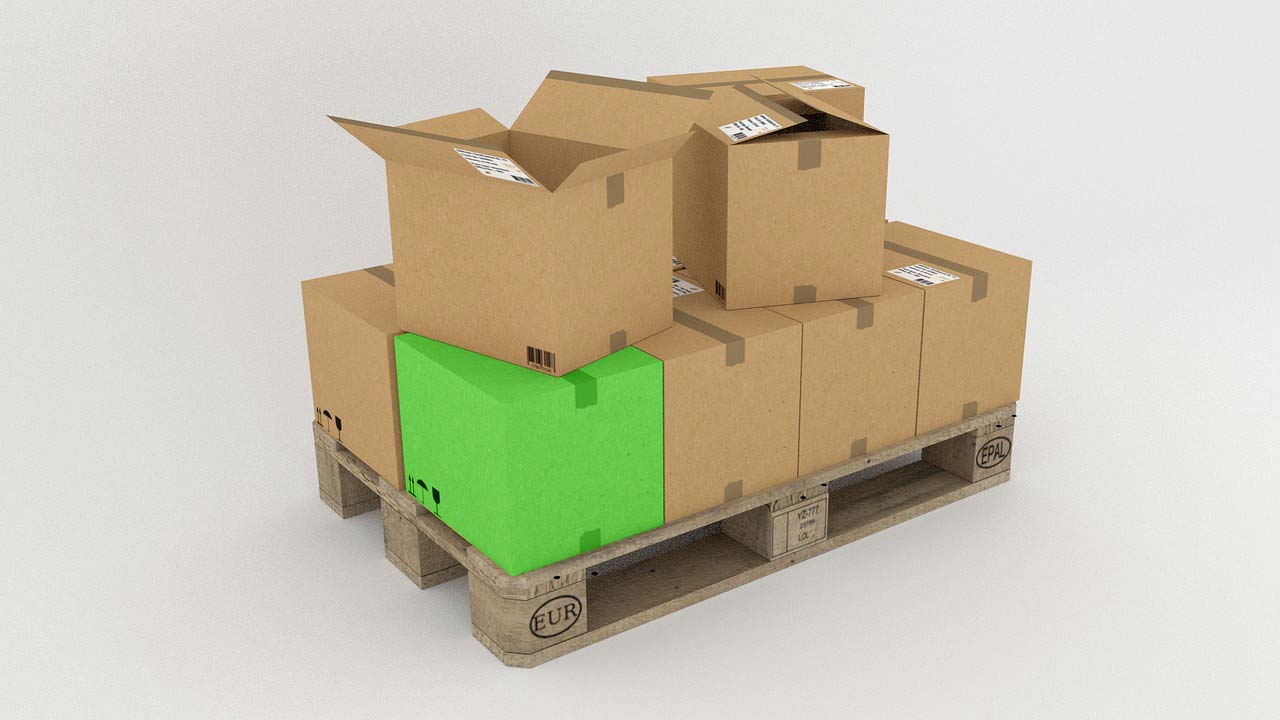
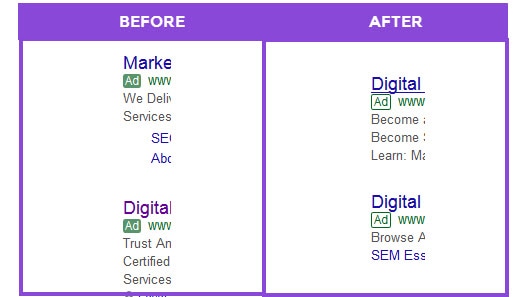
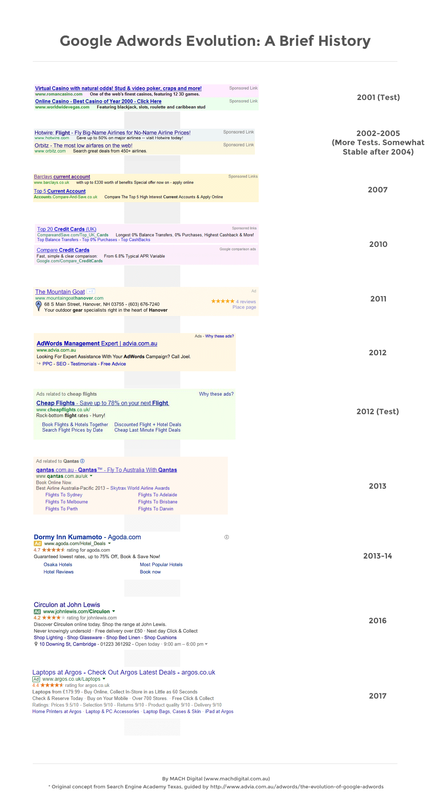
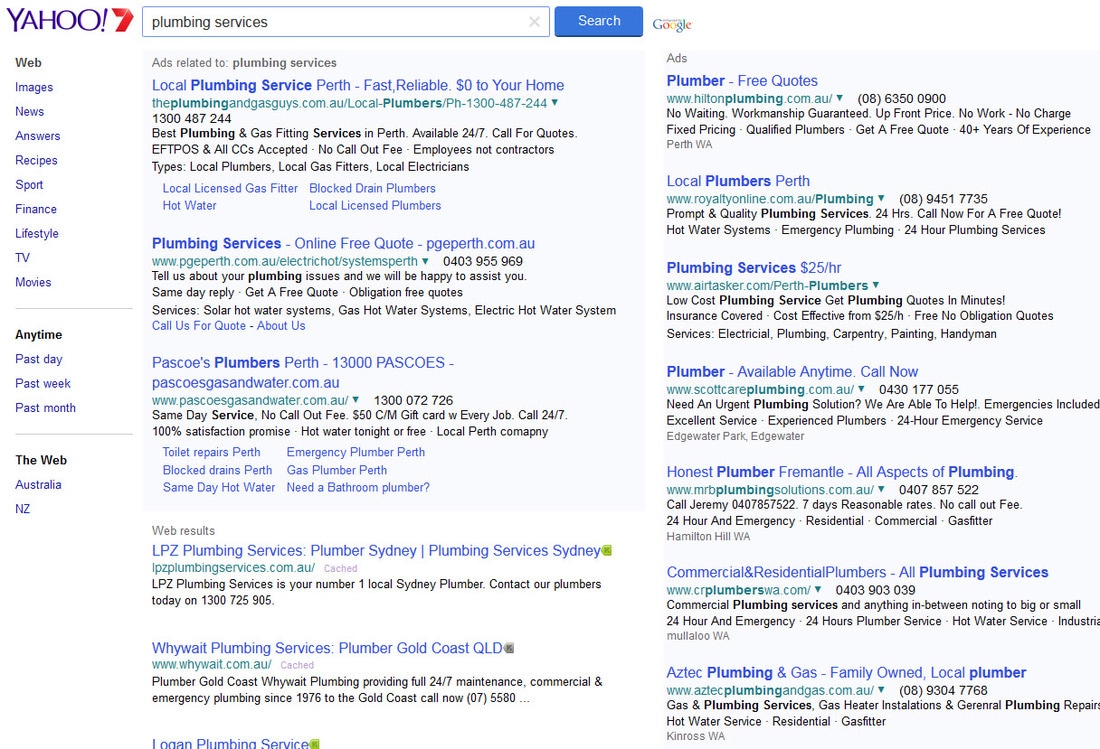
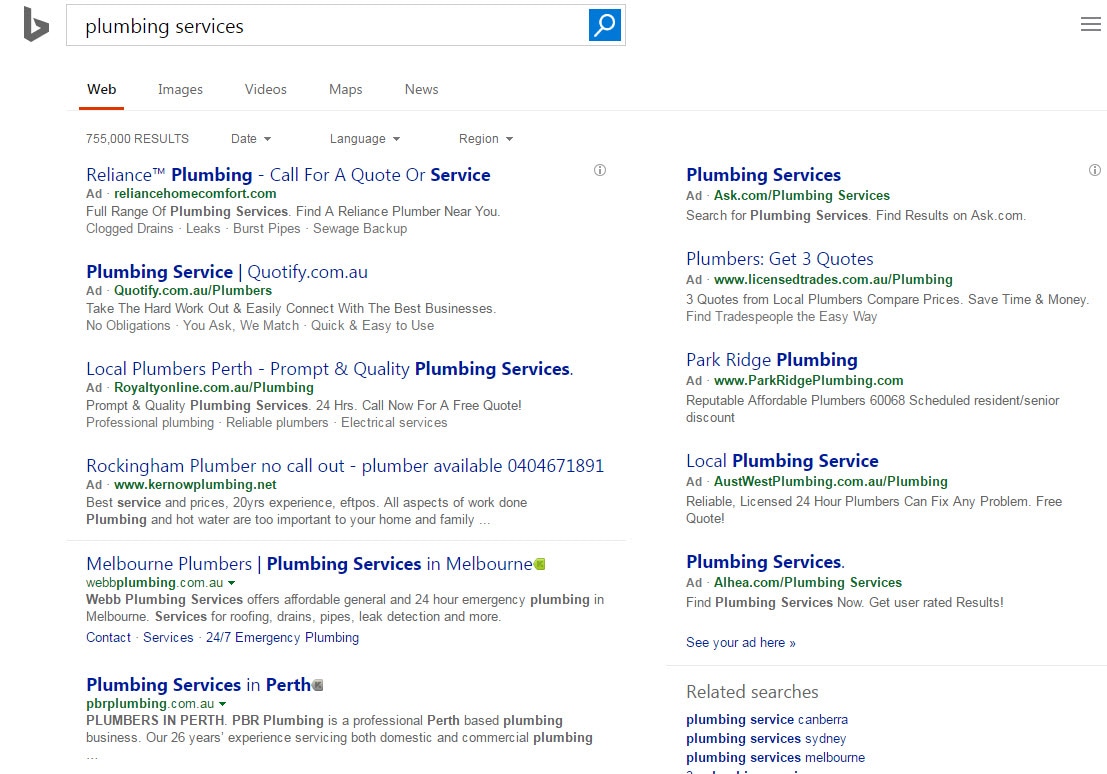

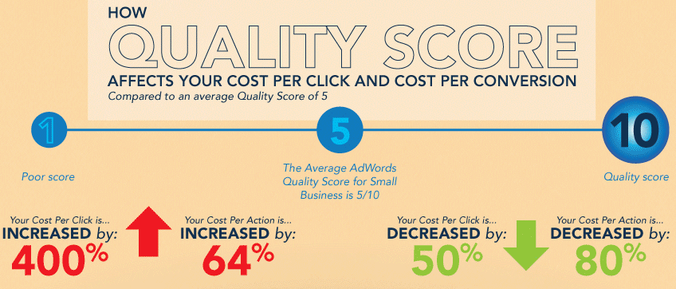
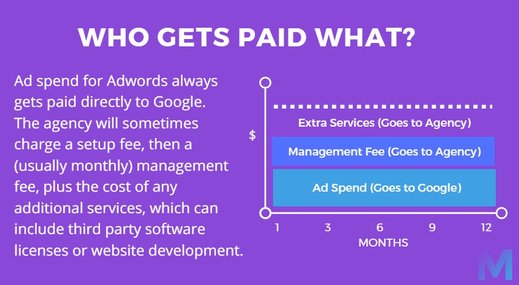
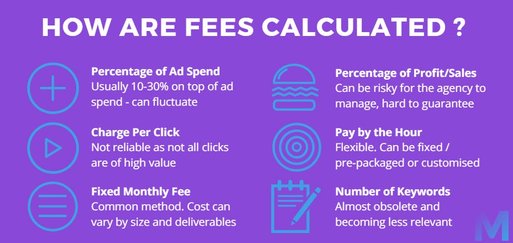

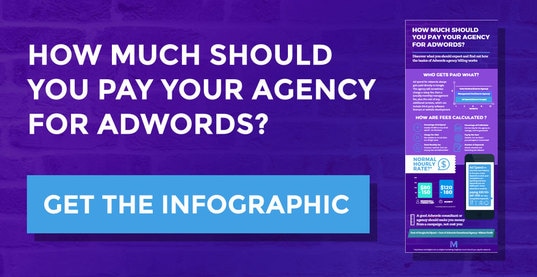
 RSS Feed
RSS Feed
